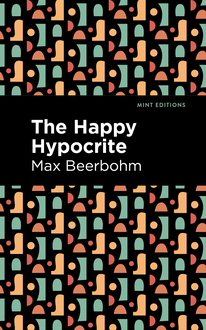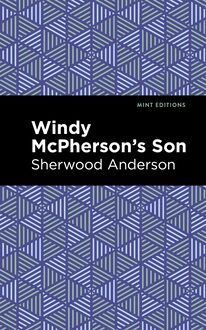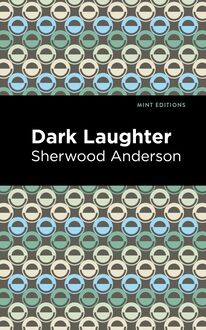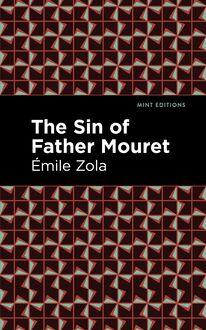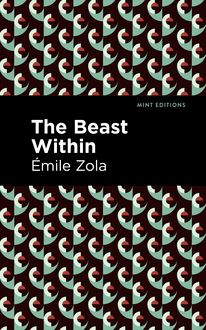-
 Univers
Univers
-
 Ebooks
Ebooks
-
 Livres audio
Livres audio
-
 Presse
Presse
-
 Podcasts
Podcasts
-
 BD
BD
-
 Documents
Documents
-
- Cours
- Révisions
- Ressources pédagogiques
- Sciences de l’éducation
- Manuels scolaires
- Langues
- Travaux de classe
- Annales de BEP
- Etudes supérieures
- Maternelle et primaire
- Fiches de lecture
- Orientation scolaire
- Méthodologie
- Corrigés de devoir
- Annales d’examens et concours
- Annales du bac
- Annales du brevet
- Rapports de stage
La lecture à portée de main
Vous pourrez modifier la taille du texte de cet ouvrage
Découvre YouScribe en t'inscrivant gratuitement
Je m'inscrisDécouvre YouScribe en t'inscrivant gratuitement
Je m'inscrisEn savoir plus
Vous pourrez modifier la taille du texte de cet ouvrage
En savoir plus

Description
Marching Men (1917) is a novel by Sherwood Anderson. Both fictional and autobiographical, Anderson’s second novel is a coming of age story that explores the individual and collective identities shaping American life. Although he is known today for his story collection Winesburg, Ohio, a pioneering work of Modernist literature admired for its plainspoken language and psychological detail, Anderson’s Marching Men is a powerful work of fiction that helped establish him as a leading realist writer of his generation. “In a country of so many varied climates and occupations as America it is absurd to talk of an American type. The country is like a vast disorganised undisciplined army, leaderless, uninspired, going in route-step along the road to they know not what end.” At a young age, Norman McGregor, a misfit dreamer, knows this to be true of his country. Fourteen-year-old Norman, ironically named “Beaut” for his homely appearance, works alongside his mother at a bakery in the town of Coal Creek. When frustration over unpaid debts leads him to close the bakery, a group of disgruntled miners nearly destroys his family’s only source of income. At the last second, a group of soldiers marches in to protect them, inspiring Norman with a sense of unity. As a young man, he leaves his hometown for Chicago, where he develops a relationship with a woman who introduces him to politics and labor organizing. Unable to shake the memory of the marching soldiers, he dedicates his life to collective empowerment. Marching Men is a story of the American Dream, for all of its difficult truths and convenient fictions. With a beautifully designed cover and professionally typeset manuscript, this edition of Sherwood Anderson’s Marching Men is a classic of American literature reimagined for modern readers.
Sujets
Informations
| Publié par | Mint Editions |
| Date de parution | 11 mai 2021 |
| Nombre de lectures | 0 |
| EAN13 | 9781513288529 |
| Langue | English |
Informations légales : prix de location à la page 0,0500€. Cette information est donnée uniquement à titre indicatif conformément à la législation en vigueur.
Extrait
Marching Men
Sherwood Anderson
Marching Men was first published in 1917.
This edition published by Mint Editions 2021.
ISBN 9781513283500 | E-ISBN 9781513288529
Published by Mint Editions ®
minteditionbooks .com
Publishing Director: Jennifer Newens
Design & Production: Rachel Lopez Metzger
Project Manager: Micaela Clark
Typesetting: Westchester Publishing Services
C ONTENTS B OOK I I II III IV B OOK II I II III IV V VI VII B OOK III I II III B OOK IV I II III IV V VI B OOK V I II III IV V VI VII B OOK VI I II III IV V VI B OOK VII I II
BOOK I
I
Uncle Charlie Wheeler stamped on the steps before Nance McGregor’s bake-shop on the Main Street of the town of Coal Creek Pennsylvania and then went quickly inside. Something pleased him and as he stood before the counter in the shop he laughed and whistled softly. With a wink at the Reverend Minot Weeks who stood by the door leading to the street, he tapped with his knuckles on the showcase.
“It has,” he said, waving attention to the boy, who was making a mess of the effort to arrange Uncle Charlie’s loaf into a neat package, “a pretty name. They call it Norman—Norman McGregor.” Uncle Charlie laughed heartily and again stamped upon the floor. Putting his finger to his forehead to suggest deep thought, he turned to the minister. “I am going to change all that,” he said.
“Norman indeed! I shall give him a name that will stick! Norman! Too soft, too soft and delicate for Coal Creek, eh? It shall be rechristened. You and I will be Adam and Eve in the garden naming things. We will call it Beaut—Our Beautiful One—Beaut McGregor.”
The Reverend Minot Weeks also laughed. He thrust four fingers of each hand into the pockets of his trousers, letting the extended thumbs lie along the swelling waist line. From the front the thumbs looked like two tiny boats on the horizon of a troubled sea. They bobbed and jumped about on the rolling shaking paunch, appearing and disappearing as laughter shook him. The Reverend Minot Weeks went out at the door ahead of Uncle Charlie, still laughing. One fancied that he would go along the street from store to store telling the tale of the christening and laughing again. The tall boy could imagine the details of the story.
It was an ill day for births in Coal Creek, even for the birth of one of Uncle Charlie’s inspirations. Snow lay piled along the sidewalks and in the gutters of Main Street—black snow, sordid with the gathered grime of human endeavour that went on day and night in the bowels of the hills. Through the soiled snow walked miners, stumbling along silently and with blackened faces. In their bare hands they carried dinner pails.
The McGregor boy, tall and awkward, and with a towering nose, great hippopotamus-like mouth and fiery red hair, followed Uncle Charlie, Republican politician, postmaster and village wit to the door and looked after him as with the loaf of bread under his arm he hurried along the street. Behind the politician went the minister still enjoying the scene in the bakery. He was preening himself on his nearness to life in the mining town. “Did not Christ himself laugh, eat and drink with publicans and sinners?” he thought, as he waddled through the snow. The eyes of the McGregor boy, as they followed the two departing figures, and later, as he stood in the door of the bake-shop watching the struggling miners, glistened, with hatred. It was the quality of intense hatred for his fellows in the black hole between the Pennsylvania hills that marked the boy and made him stand forth among his fellows.
In a country of so many varied climates and occupations as America it is absurd to talk of an American type. The country is like a vast disorganised undisciplined army, leaderless, uninspired, going in route-step along the road to they know not what end. In the prairie towns of the West and the river towns of the South from which have come so many of our writing men, the citizens swagger through life. Drunken old reprobates lie in the shade by the river’s edge or wander through the streets of a corn shipping village of a Saturday evening with grins on their faces. Some touch of nature, a sweet undercurrent of life, stays alive in them and is handed down to those who write of them, and the most worthless man that walks the streets of an Ohio or Iowa town may be the father of an epigram that colours all the life of the men about him. In a mining town or deep in the entrails of one of our cities life is different. There the disorder and aimlessness of our American lives becomes a crime for which men pay heavily. Losing step with one another, men lose also a sense of their own individuality so that a thousand of them may be driven in a disorderly mass in at the door of a Chicago factory morning after morning and year after year with never an epigram from the lips of one of them.
In Coal Creek when men got drunk they staggered in silence through the street. Did one of them, in a moment of stupid animal sportiveness, execute a clumsy dance upon the barroom floor, his fellow—labourers looked at him dumbly, or turning away left him to finish without witnesses his clumsy hilarity.
Standing in the doorway and looking up and down the bleak village street, some dim realisation of the disorganised ineffectiveness of life as he knew it came into the mind of the McGregor boy. It seemed to him right and natural that he should hate men. With a sneer on his lips, he thought of Barney Butterlips, the town socialist, who was forever talking of a day coming when men would march shoulder to shoulder and life in Coal Creek, life everywhere, should cease being aimless and become definite and full of meaning.
“They will never do that and who wants them to,” mused the McGregor boy. A blast of wind bearing snow beat upon him and he turned into the shop and slammed the door behind him. Another thought stirred in his head and brought a flush to his cheeks. He turned and stood in the silence of the empty shop shaking with emotion. “If I could form the men of this place into an army I would lead them to the mouth of the old Shumway cut and push them in,” he threatened, shaking his fist toward the door. “I would stand aside and see the whole town struggle and drown in the black water as untouched as though I watched the drowning of a litter of dirty little kittens.”
T HE NEXT MORNING WHEN B EAUT McGregor pushed his baker’s cart along the street and began climbing the hill toward the miners’ cottages, he went, not as Norman McGregor, the town baker boy, only product of the loins of Cracked McGregor of Coal Creek, but as a personage, a being, the object of an art. The name given him by Uncle Charlie Wheeler had made him a marked man. He was as the hero of a popular romance, galvanised into life and striding in the flesh before the people. Men looked at him with new interest, inventorying anew the huge mouth and nose and the flaming hair. The bartender, sweeping the snow from before the door of the saloon, shouted at him. “Hey, Norman!” he called. “Sweet Norman! Norman is too pretty a name. Beaut is the name for you! Oh you Beaut!”
The tall boy pushed the cart silently along the street. Again he hated Coal Creek. He hated the bakery and the bakery cart. With a burning satisfying hate he hated Uncle Charlie Wheeler and the Reverend Minot Weeks. “Fat old fools,” he muttered as he shook the snow off his hat and paused to breathe in the struggle up the hill. He had something new to hate. He hated his own name. It did sound ridiculous. He had thought before that there was something fancy and pretentious about it. It did not fit a bakery cart boy. He wished it might have been plain John or Jim or Fred. A quiver of irritation at his mother passed through him. “She might have used more sense,” he muttered.
And then the thought came to him that his father might have chosen the name. That checked his flight toward universal hatred and he began pushing the cart forward again, a more genial current of thought running through his mind. The tall boy loved the memory of his father, “Cracked McGregor.” “They called him ‘Cracked’ until that became his name,” he thought. “Now they are at me.” The thought renewed a feeling of fellowship between himself and his dead father—it softened him. When he reached the first of the bleak miners’ houses a smile played about the corners of his huge mouth.
In his day Cracked McGregor had not borne a good reputation in Coal Creek. He was a tall silent man with something morose and dangerous about him. He inspired fear born of hatred. In the mines he worked silently and with fiery energy, hating his fellow miners among whom he was thought to be “a bit off his head.” They it was who named him “Cracked” McGregor and they avoided him while subscribing to the common opinion that he was the best miner in the district. Like his fellow workers he occasionally got drunk. When he went into the saloon where other men stood in groups buying drinks for each other he bought only for himself. Once a stranger, a fat man who sold liquor for a wholesale house, approached and slapped him on the back. “Come, cheer up and have a drink with me,” he said. Cracked McGregor turned and knocked the stranger to the floor. When the fat man was down he kicked him and glared at the crowd in the room. Then he walked slowly out at the door staring around and hoping some one would interfere.
In his house also Cracked McGregor was silent. When he spoke at all he spoke kindly and looked into the eyes of his wife with an eager expectant air. To his red-haired son he seemed to be forever pouring forth a kind of dumb affection. Taking the boy in his arms he sat for hours rocking back and forth and saying nothing. When the boy was ill or troubled by strange dreams at night the feel of his father’s arms about him quieted him. In his arms the boy went to sleep happily. In the mind of the father there was a single recurring thought, “We h
-
 Univers
Univers
-
 Ebooks
Ebooks
-
 Livres audio
Livres audio
-
 Presse
Presse
-
 Podcasts
Podcasts
-
 BD
BD
-
 Documents
Documents
-
Jeunesse
-
Littérature
-
Ressources professionnelles
-
Santé et bien-être
-
Savoirs
-
Education
-
Loisirs et hobbies
-
Art, musique et cinéma
-
Actualité et débat de société
-
Jeunesse
-
Littérature
-
Ressources professionnelles
-
Santé et bien-être
-
Savoirs
-
Education
-
Loisirs et hobbies
-
Art, musique et cinéma
-
Actualité et débat de société
-
Actualités
-
Lifestyle
-
Presse jeunesse
-
Presse professionnelle
-
Pratique
-
Presse sportive
-
Presse internationale
-
Culture & Médias
-
Action et Aventures
-
Science-fiction et Fantasy
-
Société
-
Jeunesse
-
Littérature
-
Ressources professionnelles
-
Santé et bien-être
-
Savoirs
-
Education
-
Loisirs et hobbies
-
Art, musique et cinéma
-
Actualité et débat de société
- Cours
- Révisions
- Ressources pédagogiques
- Sciences de l’éducation
- Manuels scolaires
- Langues
- Travaux de classe
- Annales de BEP
- Etudes supérieures
- Maternelle et primaire
- Fiches de lecture
- Orientation scolaire
- Méthodologie
- Corrigés de devoir
- Annales d’examens et concours
- Annales du bac
- Annales du brevet
- Rapports de stage






